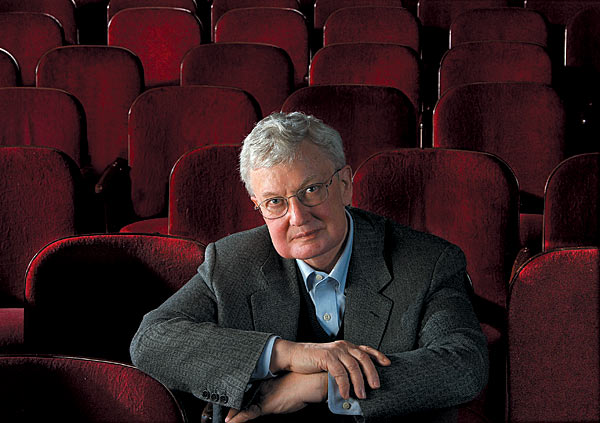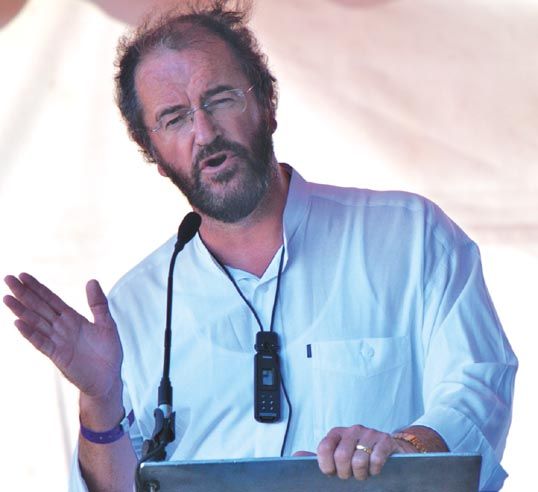Roger Ebert's Death. Mine, too...And, if you don't want to feel left out: Yours as well.
[youtube=http://www.youtube.com/watch?v=YUZ1hjn_9Ds]
Watch this before you read this post. Trust me - it will make you feel better.
Roger Ebert is more than a writer about film - a good critic realises that understanding any art form requires more than a technical proficiency in explaining cinematography or editing or acting. The best critics know a little bit about everything - or those of us trying to be good critics tell ourselves that we do, and if we're lucky or humble we don't sound like idiots when we do it. We write about movies (which for people who care about cinema is really the same thing as writing about life) as human beings; we watch as human beings; we hope to have our experience of being human explained to us, or made easier when we watch. Ebert is not only the best-known contemporary film critic; he's also one of the most humane. This makes him, for me at least, a whole critic; skeptical but not cynical; wondering, but not naive. His recent illness, leaving him unable to speak, seems to have led to a massive creative outpouring - thousands and thousands of words on current releases, books on Scorsese and Great Movies, and a web journal that has inspired the post that you're reading now.

I know it is coming, and I do not fear it, because I believe there is nothing on the other side of death to fear. I hope to be spared as much pain as possible on the approach path. I was perfectly content before I was born, and I think of death as the same state. What I am grateful for is the gift of intelligence, and for life, love, wonder, and laughter. You can't say it wasn't interesting. My lifetime's memories are what I have brought home from the trip. I will require them for eternity no more than that little souvenir of the Eiffel Tower I brought home from Paris.
He doesn't think he's going to die any time soon, but at 66 he knows that soon is relative. He illustrates his post with images of van Gogh's paintings, extracts from Whitman's poetry, a couple of squares from a Tin Tin comic. He quotes Vincent:
Looking at the stars always makes me dream, as simply as I dream over the black dots representing towns and villages on a map. Why? I ask myself, shouldn't the shining dots of the sky be as accessible as the black dots on the map of France? Just as we take a train to get to Tarascon or Rouen, we take death to reach a star. We cannot get to a star while we are alive any more than we can take the train when we are dead. So to me it seems possible that cholera, tuberculosis and cancer are the celestial means of locomotion. Just as steamboats, buses and railways are the terrestrial means. To die quietly of old age, would be to go there on foot.
I'm 34 years old, and so I know far less about both life and movies than Mr Ebert; I don't particularly fear death, although I do think about it a lot. You can't be fully in this world and not be confronted by it daily. The earthquake or the suicide bomb or the flu pandemic (or the pandemic of mass hysteria-induced flu pandemic stories) mingle with the individual examples of friends struggling with illness, of elderly people going to what we call 'a good death', aged and content, or younger friends fighting whatever steamboat, bus or railway threatens to take them earlier than we feel is just. We're surrounded by death; or at least our popular culture appears wedded to it as the most important fact of life - partly because it seems measurable, and partly because the commercial media has learned that people will pay to see it. We're surrounded by death, and it can become overwhelming. The trick, as Lawrence of Arabia would say, is not minding.
I'm more and more convinced that a whole life requires us to finding ways of offering something that transcends the fear of death that drives so much of our culture. My friend John O'Donohue, who died last year, was forever talking about how we need to learn to help people die when their time has come; he saw it as a sacred privilege to be there when a person is dying, to hold their hand, to assure them that nothing frightening is waiting for them. And so, in the last moments of their lives, some people perhaps capture something that we could do with more of right now: getting over the fear of death. One of the things that helps me is the fact that I can't deny the fact that John has felt present to me after his death. He's gone, of course, in one very real sense. But part of me thinks he might even be reading this post. Like I said, when it comes to the fear of death, the trick is not minding.

My friend John, who keeps teaching me not to fear death.
Mr Ebert doesn't seem to mind. I think I mind - or have minded - too much. I've allowed the social necrophilia of a death-obsessed culture to give me my cues for life. I've been, at times, the philosophical version of Woody Allen's character in 'Hannah and her Sisters' - so afraid of what's going to kill me that I forget that I'm alive. Movies and other art lost their power to lift me up some time ago; or perhaps I just mislaid the ability to let them do their work. Mr Ebert's post seems like an antidote. His words always seem to occupy a third way between ignorance and cynicism: on this occasion he's saying that he knows he's going to die, but he won't let a little thing like that get in the way of happiness.
[youtube=http://www.youtube.com/watch?v=hFyl4GxBzEw]
A Good Death
It leaves me wanting to acknowledge that one day, my body will slow right down, it will get lighter, and stop working. One day, I will see a film for the last time. One day, I will experience, for the last time, mowing the lawn, or drinking coffee, or feeling the warmth of the sun. And then it will be gone. A lot of people, some of them very smart people, think that I will live on, consciously, not just the same Gareth but even more Gareth than I've ever been, throughout eternity. On the other hand, of course, a lot of people, some of them very smart people too, think that I will exist only in the memories of people who knew me. Maybe we'll talk about those arguments another day. For now, I don't feel morbid writing these words. In fact, I'm smiling. Because even though I used to be certain of an afterlife, and now am unsure; even though I used to believe as deeply as I could be that there is an utterly good ground of all being that we call 'God' undergirding everything in the universe, I'm no longer sure that such an idea belongs in the category of belief; even though I am still convinced of the consolations of good religion for life on earth, I think Roger Ebert, a whole critic, may have named for me what we are all approaching, whether on foot or by train:
I know it is coming, and I do not fear it, because I believe there is nothing on the other side of death to fear.
Some music to play when thinking about death with a smile on your face:
[youtube=http://www.youtube.com/watch?v=3FniHgiyaTY]
And some more.
[youtube=http://www.youtube.com/watch?v=NZJxL3PrrLM]
 Not known for the subtlety of his performances, nor of course does it matter, Dom De Luise played a significant part in my childhood movie experiences, on the basis of performances in two films which, if I watched them today may or may not hold up to critical enquiry.
Not known for the subtlety of his performances, nor of course does it matter, Dom De Luise played a significant part in my childhood movie experiences, on the basis of performances in two films which, if I watched them today may or may not hold up to critical enquiry. The
The